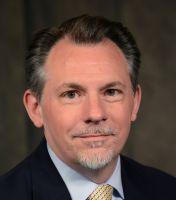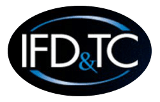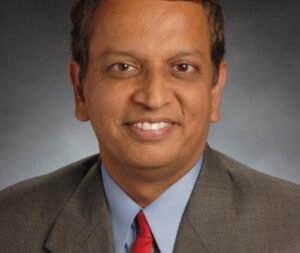| Sunday May 19, 2019 | |
| 12:00pm-5:00pm on Sunday | |
| Check-In Location: Conference Check-in Desk Come to the IFD&TC registration table to check in and pick up your conference materials. Limited late conference check-in also available from 7:30 a.m. to 9:00 a.m. Monday morning. | |
| Session 0 | 4:00pm-5:15pm on Sunday |
| 0A – All | Speed Networking Roundtable Discussion Location: Tom Thomson Facilitator: Margaret Hudson, Chris Benson, UM-Survey Research Center (UM-SRC) | NORC at the University of Chicago Session Focus: Speed Networking returns! |
| 6:00pm-7:30pm on Sunday | |
| Welcome Happy Hour Reception Location: Pool Terrace IFD&TC organizers past and present welcome you to the conference. Please join us for a happy hour reception featuring light snacks, a cash bar, and an informal time to visit with old and new friends. Dinner on your own after the reception. | |
| Monday May 20, 2019 | |
| 7:30am-9:00am on Monday | |
| Continental Breakfast Location: Toronto I Continental breakfast served. | |
| Registration Continues Location: Conference Check-in Desk If you arrived late to the conference, you have the opportunity to check in before the first session Monday morning at the IFD&TC registration desk. | |
| 8:00am-8:30am on Monday | |
| Facilitator Breakfast Location: Carmichael All attendees facilitating a session at the conference are asked to attend a half hour breakfast meeting to go over facilitator guidelines and answer questions. If you’ve been a facilitator before, please come share your experiences with newer facilitators. If this is your first time, join us to meet others, and learn more about how facilitating works at IFD&TC. | |
| Session 1 | 9:00am-10:15am on Monday |
| 1A – All |  The Changing Landscape of Human-Centered Questionnaire Development – Paul Beatty, Chief, Center for Survey Measurement, U.S. Census Bureau The Changing Landscape of Human-Centered Questionnaire Development – Paul Beatty, Chief, Center for Survey Measurement, U.S. Census BureauInvited Address: Survey Methodology Location: Toronto III Facilitator: Jennifer Dykema, University of Wisconsin Survey Center IFD&TC is very pleased to welcome Paul Beatty of the U.S. Census Bureau for the Field keynote address. This presentation considers how some of our common questionnaire development methods are evolving in response to shifts in survey modes, availability of new data sources, and other notable changes in the survey landscape. |
| 10:15am-10:45am on Monday | |
| Monday AM Break Refreshments served. | |
| Session 2 | 10:45am-12:00pm on Monday |
| 2A – Field | Strategies to Improve Response Rates Presentation & Discussion: Survey Methodology Location: Toronto II/III Facilitator: Tracy Keirns, University of New Hampshire Session Focus: Learn more about techniques for formatting and introducing surveys, follow-up strategies that work, and call-in options to improve response rates.
|
| 2B – Field | Cultural Considerations in Survey Research Presentation & Discussion: Survey Methodology Location: Carmichael Facilitator: Yu-chieh (Jay) Lin, UM-Survey Research Center (UM-SRC) Session Focus: Presenters will share important advances in survey language translations, cultural considerations when adapting survey scales and recruiting special populations.
|
| 2C – Field | Respondent Contact Protocols Across Modes Presentation & Discussion: Survey Methodology Location: Varley Facilitator: David Bergeron, RTI International Session Focus: Join us for a session that focuses on different approaches to respondent contact protocols across modes.
|
| 2D – Tech | Extending Technical Tools Presentation & Discussion: General Tech (Hard Tech) Location: Jackson Facilitator: Eric White, University of Wisconsin Survey Center Session Focus: Technical solutions frequently involve a mix of off-the-shelf and custom software. This session provides a mix of homegrown solutions and innovative extensions of licensed software products.
|
| 12:00pm-1:00pm on Monday | |
| Random Digit Dining – Monday Lunch Location: Toronto I Bring your RDD lunch ticket and join us for lunch. Attendees are seated at tables according to the number drawn on their lunch tickets at check in. RDD lunch is a fun way to meet and get to know other attendees! | |
| Session 3 | 1:30pm-2:45pm on Monday |
| 3A – Field | Large Studies Presentation & Discussion: Center Management and Staff Training Location: Toronto II Facilitator: Gina Cheung, UM-Survey Research Center (UM-SRC) Session Focus: Large scale data collection efforts provide unique opportunities for learning about center and staff management. This session will highlight multiple aspects of four large data collection efforts from different organizations.
|
| 3B – Field | Recruitment with Special Populations Presentation & Discussion: Survey Methodology Location: Carmichael Facilitator: Peter Batra, UM-Survey Research Center (UM-SRC) Session Focus: Learn about cutting edge methods for recruiting participants from specialized provider and patient populations.
|
| 3C – Field | Small Shop Roundtable Roundtable Discussion: Center Management and Staff Training Location: Varley Facilitator: Kelleigh Trepanier, A.L. Burruss Institute – Kennesaw State University Session Focus: Do you work in a small shop? Come discuss problems you face and solutions you’ve implemented given constraints in terms of size, budget, and organizational context. This roundtable will facilitate networking, sharing of ideas, and adapting to ensure that your small shop prospers. |
| 3D – Tech | Topics in Technical Infrastructure and Best Practice Presentation & Discussion: General Tech (Hard Tech) Location: Tom Thomson Facilitator: Orin Day, RTI International Session Focus: Presenters will provide an eclectic take on various infrastructure issues impacting survey centers. Many centers are experiencing pressure to migrate to cloud-based platforms for a range of services. Longstanding concerns regarding security and testing are also addressed.
|
| 2:45pm-3:15pm on Monday | |
| Monday PM Break Refreshments served. | |
| Session 4 | 3:15pm-4:30pm on Monday |
| 4A – Field | Calling Strategies to Improve Response Rates and Other Key Metrics Presentation & Discussion: Survey Methodology Location: Carmichael Facilitator: Delicia Solis, MSU Office for Survey Research Session Focus: Challenges and solutions in sampling and calling strategies for telephone and establishment surveys.
|
| 4B – Field | Fast-Paced Lightning Review of Data Collection Strategies to Improve Response Rates Lightning Session: Survey Methodology Location: Tom Thomson Facilitator: Heidi Guyer, UM-Survey Research Center (UM-SRC) Session Focus: Join us for a lightning round of brief presentations on a wide range of topics including a review of incentive strategies and optimizing respondent recruitment using sampling and outreach strategies.
|
| 4C – Field | IRB Challenges in 2019 Roundtable Discussion: Center Management and Staff Training Location: Varley Facilitator: Janice Larson, Iowa State University – CSSM Session Focus: This roundtable will provide opportunity to discuss the implications of recent IRB changes for survey shops as well as how to most effectively address those challenges. |
| 4D – Tech | Using Paradata and Statistical Modelling to Assess Survey Projects Presentation & Discussion: General Tech (Hard Tech) Location: Jackson Facilitator: Brian Harnisch, Wyoming Survey and Analysis Center Session Focus: What are the best data and methods for assessing the performance of various aspects of survey operations? Traditional statistical methods such as multiple regression as well newer data visualization techniques are considered in this session on use of paradata and statistical modeling.
|
| Session 5 | 4:45pm-5:45pm on Monday |
| 5A – All | Business Meeting (All Attendees) Location: Toronto II Everyone is encouraged to attend the IFD&TC Business Meeting. Even if this is your first year attending the conference, your participation is welcome. The Business Meeting is where we discuss the future of the IFD&TC conference, elect new organizers, and learn about the location of future conferences. |
| Tuesday May 21, 2019 | |
| 7:30am-9:00am on Tuesday | |
| Continental Breakfast Location: Toronto I Continental breakfast served | |
| Session 6 | 9:00am-10:15am on Tuesday |
| 6A – All |  New Modes, New Data, Same Errors – Fred Conrad, Director, Michigan Program in Survey Methodology, University of Michigan Location: Toronto III Facilitator: Heidi Guyer, UM-Survey Research Center (UM-SRC) Fred Conrad is a Research Professor at the University of Michigan’s Survey Research Center. He will discuss several new and emerging modes for collecting conventional survey data (i.e., self-reports), specifically text messaging, virtual interviewers, and video-mediated interviewing. In addition he will talk about two types of data that are not self-reported but may hold promise for social and behavioral research: sensor data collected with smartphones and social media posts, specifically tweets. He will suggest that the Total Survey Error framework continues to apply and can help improve quality across modes and types of data. |
| 10:15am-10:45am on Tuesday | |
| Tuesday AM Break Refreshments served. | |
| Session 7 | 10:45am-12:00pm on Tuesday |
| 7A – Field | Challenges with Web Surveys Presentation & Discussion: Survey Methodology Location: Tom Thomson Facilitator: David Northrup, York University – Institute for Social Research Session Focus: Survey research methods for web surveys continue to evolve. Come and learn more about recent challenges and solutions with web surveys on topics such as experiments in email recruitment, ways to encourage web response, and obtaining high data quality.
|
| 7B – Field | Managing Centralized and Decentralized Interviewers Presentation & Discussion: Center Management and Staff Training Location: Carmichael Facilitator: Beverly Weidmer, RAND Survey Research Group Session Focus: Presenters will share the latest on management tools, forecasting field production, employee satisfaction, and using dashboards to monitor and motivate data collection staff.
|
| 7C – Field | Writing Cost Proposals Roundtable Discussion: Center Management and Staff Training Location: Varley Facilitator: Kelly Elver, University of Wisconsin Survey Center Session Focus: Yearly roundtable for those involved in cost estimate and proposal writing. |
| 7D – Tech | Accessibility Standards and Testing Workshop: Field Tech (Soft Tech) Location: Jackson Facilitator: Jeff Coburn, Institute for Community Inclusion at UMass Boston, and Sandhya Bikmal, RTI International Session Focus: The Section 508 standards have recently been revised and now incorporate WCAG guidelines. This workshop will focus on practical tests for the most common violations of WCAG Success Criteria that would specifically apply to web forms and surveys. While the talk will be on the more technical side, we will stay happily within the web browser, and feature some useful extensions, and away from command line or build tools. Key takeaways will be a better understanding of the guidelines; how they apply to surveys; and how to test for, and discover, the most common violations and issues. |
| 12:00pm-1:00pm on Tuesday | |
| Random Digit Dining – Tuesday Lunch Location: Toronto I Bring your RDD lunch ticket and join us for lunch. Attendees are seated at tables according to the number drawn on their lunch tickets at check in. RDD lunch is a fun way to meet and get to know other attendees! | |
| Session 8 | 1:30pm-2:45pm on Tuesday |
| 8A – Field | Pre and Post Incentive Strategies Presentation & Discussion: Survey Methodology Location: Toronto II Facilitator: Christy Storey, A.L. Burruss Institute – Kennesaw State University Session Focus: Incentives are an important tool for obtaining higher response rates in the world of survey research. This session will explore pre- and post-interview incentive strategies, including monetary and non-monetary incentives and experimental designs.
|
| 8B – Field | Interviewer Recruitment and Training Presentation & Discussion: Center Management and Staff Training Location: Carmichael Facilitator: Nick Schultz, University of Wisconsin Survey Center Session Focus: Presenters will share valuable techniques in evaluating, recruiting & training new interviewing staff as well as the development of new fielding protocols.
|
| 8C – Field | Technical Challenges and Solutions in Center Management Panel Discussion: Center Management and Staff Training Location: Jackson Facilitator: Lew Berman, ICF Session Focus: This panel will discuss two sets of challenges and solutions in center management. Telephone based surveys typically use supervisory staff to live-monitor interviewers or manually review recordings for effective speech rate, properly reading a question, and accurately recording a response. General industry practice is to review 5-10% of all calls. However, these practices are labor intensive, subjective, and the evidence for this range of review is anecdotal. This panel will discuss current call center practices and new technical solutions for improving these practices. Spam blockers are having an increasing impact on our ability to contact respondents by phone. Panelists will share research about spam blockers, how they affect centers with different telephone systems, and possible solutions to ensure your calls get through to study participants.
|
| 8D – Tech | Geographic Data in the Service of Field Management Presentation & Discussion: Field Tech (Soft Tech) Location: Tom Thomson Facilitator: Tim Olson, U.S. Census Bureau Session Focus: Location data is playing an increasing role in the management of field survey operations. The presentations in this section demonstrate how geographic data can be used to detect falsification and maximize the productivity of field efforts.
|
| 2:45pm-3:15pm on Tuesday | |
| Tuesday PM Break Refreshments served. | |
| Session 9 | 3:15pm-4:30pm on Tuesday |
| 9A – Field | Effective Contact Strategies to Improve Response Rates Presentation & Discussion: Survey Methodology Location: Toronto II Facilitator: Ella Kemp, NORC at the University of Chicago Session Focus: Presenters will focus on the latest improvements to contact materials and strategies, including using social media and text messages for respondent outreach and the effects of contact verification on response rates.
|
| 9B – Field | Fast-Paced Lightning Review of Field Tech Strategies in Data Collection Lightning Session: Survey Methodology Location: Carmichael Facilitator: Jaime Faus, University of Wisconsin Survey Center Session Focus: Don’t miss this lightning round on a wide range of technical innovations and strategies on topics including video interviews, electronic signatures, and monitoring methods.
|
| 9C – Field | Changes and Challenges in Fielding Federal Surveys Roundtable Discussion: Survey Methodology Location: Jackson Facilitator: Jennifer Draude-Wilson, Darine Zaatari, NORC | NORC Session Focus: This open discussion will allow participants to discuss challenges and solutions when fielding federally funded surveys. Topics may include service contract act (SCA), government shutdowns over the past decade, data privacy and security issues and achieving target response rates. |
| 9D – Tech | Tech Showcase Presentation & Discussion: General Tech (Hard Tech) Location: Tom Thomson Facilitator: Tim Sanders, American Society for Radiation Oncology Session Focus: Browse the showcase tables and get a hands-on demonstration of hardware and software for data collection from those who develop and use it.
|
| Session 10 | 4:45pm-6:00pm on Tuesday |
| 10A – All | Tech Talk Roundtable Discussion: Field Tech (Soft Tech) Location: Varley Facilitator: Gina Cheung, UM-Survey Research Center (UM-SRC) Session Focus: Join attendees with an interest in the technical aspects of survey research for a special roundtable discussion. The open format allows for a range of soft tech management topics and current events impacting survey center technical operations. |
| Wednesday May 22, 2019 | |
| 7:30am-9:00am on Wednesday | |
| Continental Breakfast Location: Toronto I Continental breakfast served. | |
| Session 11 | 9:00am-10:15am on Wednesday |
| 11A – Field | Ancillary Data Collection Presentation & Discussion: Survey Methodology Location: Varley Facilitator: Jessica Maleryn, NORC at the University of Chicago Session Focus: Each year, survey researchers are asked to collect more types of non-survey data. This session will share details of implementing some of the most popular types of ancillary data collection such as physical measures, blood and microbiome samples, actigraphy, ecological momentary assessment, and sleep diaries.
|
| 11B – Field | Current Trends in Multi and Mixed-Mode Data Collection Presentation & Discussion: Survey Methodology Location: Tom Thomson Facilitator: Kyle Fennell , NORC at the University of Chicago Session Focus: For years, presenters and panelists at IFD&TC, AAPOR, and other conferences have worried about impact of decreasing survey participation and tight budgets on primary data collection efforts. Multimode data collection holds out the promise of better response rates, reduced cost, and other benefits. Join us for a session that will examine potential benefits and perils of implementing multimode data collection across a range of considerations, including project management, special respondent populations, and interviewers.
|
| 11C – Field | Monitoring Interviewers and Ensuring Quality Control Presentation & Discussion: Center Management and Staff Training Location: Carmichael Facilitator: Hillary Hanson, University of Chicago Survey Lab Session Focus: This session will focus on systems and strategies to assess data quality and protocol standardization among interviewers.
|
| 11D – Tech | Trading Small Shop Tech Tools and Tips Roundtable Discussion: Field Tech (Soft Tech) Location: Jackson Facilitator: Ellen Malven, Jan Larson, Iowa State University – Center for Survey Statistics & Methodology (CSSM) | Iowa State University – Center for Survey Statistics & Methodology (CSSM) Session Focus: During this roundtable discussion, small shops are invited to share the tools and tech that aide in their own operations, while also learning about new tools and tech used by other shops. |
| 10:15am-10:45am on Wednesday | |
| Wednesday AM Break Refreshments served. | |
| Session 12 | 10:45am-11:45am on Wednesday |
| 12A – All | Survey Says! Closing Session Invited Address Location: Toronto II Facilitator: John Stevenson, University of Wisconsin Survey Center Only the cool kids stay for the final session of IFD&TC this year! Root on your fellow attendees in a Family Feud-inspired showdown, as they play for fame and bragging rights. Stay tuned for more details and the survey questions! |
IFD&TC
International Field Directors and Technologies Conference


